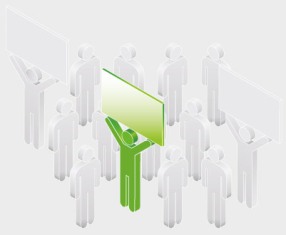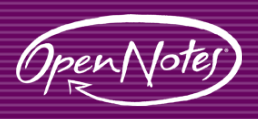December 19th, 2010 by Medgadget in Better Health Network, Medical Art, News, Research
No Comments »

 Google has released an awesome in-browser anatomy viewer to demo the new 3D graphics capabilities of their Chrome development version. It lets you explore the human body in all its glory in a Google Earth-like fashion. Individual anatomic layers (skin, muscles, bones, etc.) can be selected or deselected for viewing, but can also be made semi-transparent on an individual level. Labels can be displayed, and all anatomy is fully searchable.
Google has released an awesome in-browser anatomy viewer to demo the new 3D graphics capabilities of their Chrome development version. It lets you explore the human body in all its glory in a Google Earth-like fashion. Individual anatomic layers (skin, muscles, bones, etc.) can be selected or deselected for viewing, but can also be made semi-transparent on an individual level. Labels can be displayed, and all anatomy is fully searchable.
The catch is you will need a WebGL enabled browser to try it. WebGL is a technique that enables 3D graphics within the browser without the use of plugins. Chrome 9 Dev Channel, Chrome Canary Build and Firefox 4 beta have this enabled by default. In Chrome 8 (the current stable version), you can enable it by going to about:flags (type it in the address bar), and from there enable WebGL. Below are two videos, one demonstrating the body browser, and one of a presentation by the developers.
Link: Google Body Browser…
(Hat Tip: Google Operating System Blog)
*This blog post was originally published at Medgadget*
November 11th, 2010 by Berci in Better Health Network, News, Research
No Comments »

 medCrowd is the 52nd in my list of biomedical community sites and maybe the first one using crowdsourcing. From medCrowd:
medCrowd is the 52nd in my list of biomedical community sites and maybe the first one using crowdsourcing. From medCrowd:
Perhaps, you have a patient with a rare condition and you don’t know the best treatment. Or you are treating a patient and you have heard there have been recent developments in the field, but you are not sure how these actually affect your patient’s day-to-day management.
The problem is finding the best solution for your patient. What you need is help finding it.
medCrowd enables you to find the best solution for your patient by collecting your peers’ professional opinions, simply and in one place. This is called crowdsourcing.
*This blog post was originally published at ScienceRoll*
November 4th, 2010 by Berci in Better Health Network, Health Policy, Health Tips, Research
No Comments »

Whenever I talk to doctors about using social media in medicine, they seem to think there are more cons than pros regarding this issue. I like reminding them about some major differences between 2000 and today:
| What would I do if… |
In 2000 |
Today |
| I need clinical answer |
Try to find a collegue who knows it |
Post a question on Twitter |
| I want to hear patient story about a specific condition |
Try to find a patient in my town |
Read blogs, watch YouTube |
| I want to be up-to-date |
Go to the library once a week |
Use RSS and follow hundreds of journals |
| I want to work on a manuscript with my team |
We gather around the table |
Use Google Docs without geographical limits |
Read more »
*This blog post was originally published at ScienceRoll*
August 13th, 2010 by DavedeBronkart in Better Health Network, Health Policy, Opinion, True Stories
No Comments »

 Next in our series on my experience with OpenNotes, a project sponsored by the Robert Wood Johnson Foundation’s Pioneer Portfolio.
Next in our series on my experience with OpenNotes, a project sponsored by the Robert Wood Johnson Foundation’s Pioneer Portfolio.
This item has nothing to do with OpenNotes itself –- it’s what I’m seeing now that I’ve started accessing my doctor’s notes. In short, I see the clinical impact of not viewing my record as a shared working document.
Here’s the story.
______
In OpenNotes, patient participants can see the visit notes their primary physicians entered. Note “primary,” not specialists. I imagine they needed to keep the study design simple.
So here I am in the study, going through life. Five weeks ago I wrote my first realization: After the visit I’d forgotten something, so I logged in. Read more »
*This blog post was originally published at e-Patients.net*
July 29th, 2010 by Bryan Vartabedian, M.D. in Better Health Network, Health Policy, Opinion, Research
No Comments »

I have a friend actively involved in social health applying for medical school. She reached out to ask me how much should she make of her social media involvement? Will the mention of participation on a SXSW panel or the start of a social community help or hurt her application?
Actually a good question. Some academics, after all, see social media as a waste of time, but many are curious about it. The really smart ones understand its potential power. So as a medical school applicant you can see how this could work for you or against you.
While initially I thought that positioning yourself as a social health innovator could be something of a liability, I think the potential upside outweighs risk. But like so many things, it’s all in how you set it up. Read more »
*This blog post was originally published at 33 Charts*
 Google has released an awesome in-browser anatomy viewer to demo the new 3D graphics capabilities of their Chrome development version. It lets you explore the human body in all its glory in a Google Earth-like fashion. Individual anatomic layers (skin, muscles, bones, etc.) can be selected or deselected for viewing, but can also be made semi-transparent on an individual level. Labels can be displayed, and all anatomy is fully searchable.
Google has released an awesome in-browser anatomy viewer to demo the new 3D graphics capabilities of their Chrome development version. It lets you explore the human body in all its glory in a Google Earth-like fashion. Individual anatomic layers (skin, muscles, bones, etc.) can be selected or deselected for viewing, but can also be made semi-transparent on an individual level. Labels can be displayed, and all anatomy is fully searchable.















